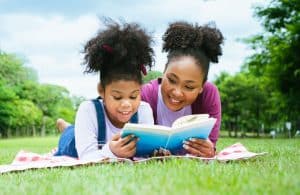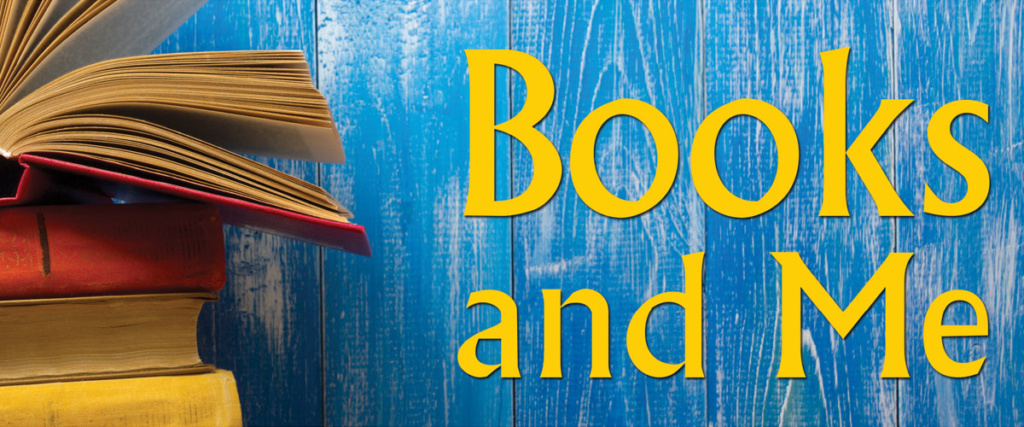F or much of my childhood and early adulthood, there was little I enjoyed more than reading. I learned to read very early, inspired by my parents’ nightly ritual of reading the newspaper. I wanted to know why they spent so much time reading those large, noisy pages.
This made the transition into school pretty smooth. And there was a library there! I devoured science and Judy Blume books alike. When I got bored with the daily neighborhood kickball games played in the street in front of my house, I would grab a book and sit under the tree in our front yard, happy as can be.
Through middle school and high school, books were my main source of self-education; no computer searches in those days! I was hopelessly inept at advanced math, but I was happy to tackle anything on the suggested reading lists. If my friends were busy, I would ride my bike to our community library, scouring obscure reference books and other volumes.
In high school, I decided on journalism as a potential career because I figured it was the only way I would be able to find work in the art of putting words together. Years later, when I was finally employed in the field, I volunteered as a reading tutor. I couldn’t imagine not having the skills that are so important for navigating the real world, yet alone those that fueled my vast inner world.
For several years, I worked with an older gentleman. He could not read the labels on his heart medication bottles, but he was a hard worker and a proud grandfather. He wanted to be a role model for his kids and grandkids. Boy, was he! By the time we ended our collaboration, this man had learned to read his mail, the signs he saw while driving, and the ingredients in his food.
He had changed his life by learning skills that he had not had the chance to learn when he was young—skills most of us take for granted. Although he died long ago, I think of him often and consider my hours spent helping him to be some of the most enriching of my life.
The patience I honed as a tutor came in handy when I became a parent. There was much less time for me to engage in my own love of books, and my focus turned to making sure my kids became readers. With my older son, I thought I had succeeded. I read to him as much as I could, and soon he was bringing books with him everywhere he went. As a preschooler, his nap times evolved into quiet reading times.
My second son was much less enthralled with reading. He had a few favorites (thank goodness for Stella Luna and Where the Wild Things Are). But he was rarely, if ever, one to pick up a book to amuse himself. He was more of a small car or Lego guy, always wanting to move his hands, or re-enact something going on in his curious mind.
And learning to read was not a priority for him when he started school. My son’s early elementary years were peppered with “serious” talks with teachers and reading specialists. During those years, I would spend my evenings trying to help my son strengthen his reading skills. Several of his summers included reading “camps” at local colleges.
Thankfully, some the more creative educators he encountered supported and broadened his interest in science and nature. They, as I had, steered him toward non-fiction books and encouraged him to practice applying the information he read by creating projects. We still have some posters that he made during those years: One, a blood-tinged opus comparing salt and freshwater sharks, still hangs in our house. These projects ended up being good preparation for the critical reading skills children are now required to show on Common Core tests.
These days, my older son reads little for fun—unless a computer or smartphone is involved. But his honors English class ensures he spends many nights immersed in the classics.
My younger son has finally learned that, while reading may never be his first choice of activity, he can now tackle his grade-level assignments with confidence. He has also continued the nightly reading ritual required by teachers during the school year.
My heart still sinks if, say, I decide to make an unplanned stop at my favorite used bookstore and he is with me. Inevitably, I’ll hear the groans, tinged with panic. The sheer disappointment in his voice puzzles me, and reminds me that not everyone has that deep-down passion for books.
This is, after all, the guy who walks around with a field guide when we visit the seashore or go on long hikes. He has obviously found where reading fits into his life—just not the same place it does in mine.
I, too, read less than I used to for my own interests. And I accept that my guys do not need the same kind of retreat a good book gives me. But my day job, as a special education teaching assistant, now sometimes includes helping students get closer to reaching their own potential in reading.
There is, usually, a lot of ground for these young people to make up, and there are many things that make each student different. But I have the benefit of hindsight to know that when it comes to reading, it’s worth not giving up.





